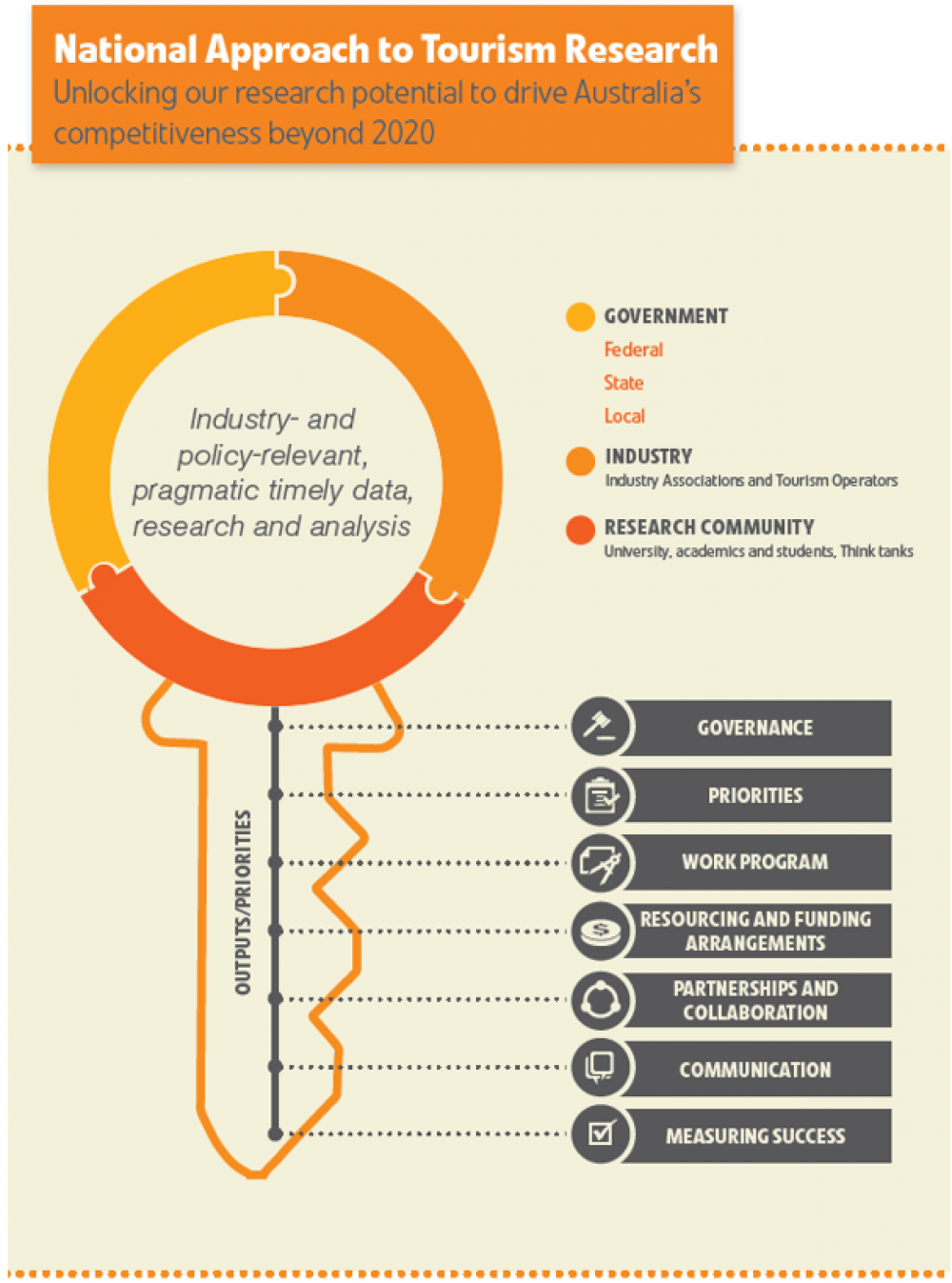Unlocking our research potential to increase the competitiveness of Australia’s tourism industry
If Australia is to stay ahead of the game and strive for the upper bound of the Tourism 2020 targets, industry, government and the research community must work together to deliver high-quality, evidence based research to address key priorities, risks and knowledge gaps. This research needs to be a practical resource for tourism industry and policy-makers nationwide to understand the trends, take advantage of the opportunities and become more innovative in order to grow our competitive advantage.
Tourism research provides the evidence base to support policy, investment, planning, marketing and other business decisions. It enables industry to respond to changing market and economic conditions as well as address structural barriers and other supply-side issues. It gives the Australian industry the edge it needs to stay ahead in a very competitive global tourism market.
Tourism Research Roundtables 2016
The first stage in the development of the National Approach to Tourism Research (NATR) was the delivery of research roundtables across Australia. Tourism Research Australia (TRA) in conjunction with the Tourism Industry Councils, Tourism Australia (TA) and the respective State and Territory Tourism Organisations held ten Research Roundtables across Australia. The roundtables took place in Canberra (twice), Melbourne, Perth, Sydney (twice), Brisbane, Darwin, Adelaide and Roma. Over 200 stakeholders attended from tourism-related fields, including:
- Academics – with over 30 representatives from this sector;
- Federal, State and Local governments – with over 50 representatives from other sectors as well as from tourism
- Industry Associations – with 36 representatives covering all areas of the industry; and
- Operators – with 49 individual tourism operators from large organisations down to small and medium-sized organisations.
Results
The roundtables resulted in:
- A stocktake of current (and recent) tourism research and data that is available from government, industry and academia.
- A better understanding of what research and data is already available.
- A greater understanding of industry requirements from both government and academia in the short, medium and long term.
- An understanding of the current level of investment in tourism research and development, and what it needs to be, for Australia to remain competitive.
- A discussion about the need for a National Approach to Tourism Research (NATR) to determine who is best placed to do what research and data collection – industry, government, the research community or a collaboration between all or some of the partners.
Outcomes
The roundtables resulted in suggestions that:
- In order to maximise business benefit from tourism research there is a need for a research portal/clearing house where interested parties could post their research, collaborate on research and data projects and post snapshots of the research that would be of greatest benefit to tourism operators.
- There is a need to maximise the research effort through the development of a NATR that looks beyond 2020.
- Research partnerships should be developed and leveraged to better utilise the data and information produced and make it more accessible to tourism businesses.
- There is a need for insights that are forward-looking and provide a picture of the future state of the tourism sector.
- There is a need to develop an agreed approach to measuring the economic impact of business events.
Roundtables in 2017 will focus on progress towards Tourism 2020 and what is needed for the next national long-term tourism strategy beyond 2020, including the development of a research work program and identification of success metrics for the new strategy.
The draft NATR includes the 2017 research priorities identified through the roundtables, including the development of a research portal. The draft NATR is available here
For more information on NATR click here.
Excerpted from Tourism Research Australia.
